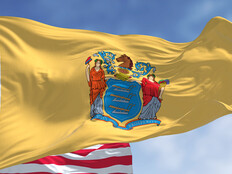Washington D.C. Marks First Open-Government Advisory Meeting
The District of Columbia’s Open Government Advisory Group may be only a month old but the 15-member group has already established bylaws and a working outline of short- and midterm projects for boosting transparency and accountability.
The first order of business will be evaluating and providing recommendations on improving the content and format of open-government plans submitted by dozens of the District’s agencies. The group will also prioritize which boards and commissions should stream their open meetings through a webcast, though the financial impact and captioning requirements have not been determined.
“I’m putting it out here for discussion in terms of how this committee goes about doing its work,” Brian Flowers, general counsel to the mayor and chairman of the D.C. Open Government Advisory Group, said at a Nov. 19 kickoff meeting. (You can watch a video archive of the meeting here. The second meeting is scheduled for Dec. 3 at 7 p.m. EST)
The advisory group agreed on three midterm goals, two of which were categorized as Freedom of Information Act projects. They include identification of new categories and types of information to be regularly posted online and a review of the terms and conditions that govern publishing the data. The group will recommend whether the terms and conditions need updating. Another midterm goal is revising the terms and conditions for releasing other data from the District.
These priorities are based on the roles and responsibilities detailed in the advisory group’s bylaws. Members are charged with:
• Evaluating the District's progress fulfilling Mayor Vincent Gray’s Transparency, Open Government and Open Data Directive and making specific recommendations for improving the openness and transparency of the District government.
• Providing a forum for agencies and the public to share best practices on innovative ideas to promote transparency, participation and collaboration.
• Providing recommendations on policies, terms and conditions, requirements, and procedures that promote open government data through procurement of goods and services.
Rob Mancini, an advisory group member and the District’s chief technology officer, said his team plans to engage with the public to better understand what open data people want to see.
“It only has value if the public consumes it and wants it,” Mancini said at the November meeting. “We don’t always know what the public wants from within the government unless we ask.”









